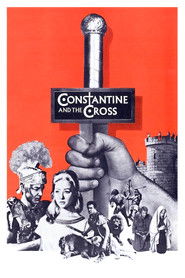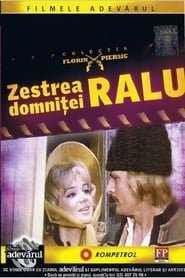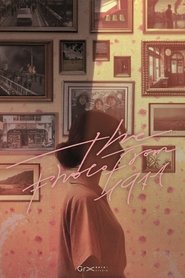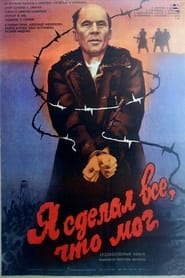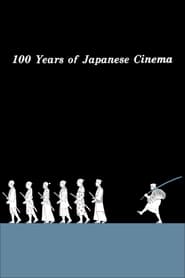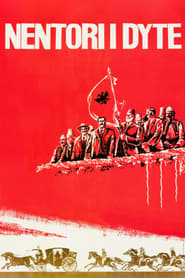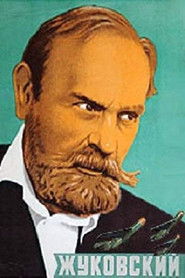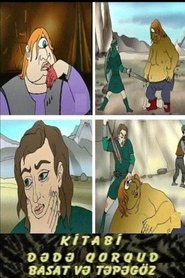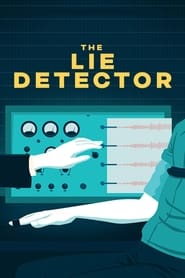Popular History Movies on Pantaflix - Page 174
-
Constantine and the Cross
1961
star 5.1Constantine is fighting against Barbarians with his father when he is called to Rome. In his way to Rome, he falls in an ambush planned by Maxence, who wants to become emperor. -
The Dowry of Lady Ralu
1972
star 7.5Part two of the triptych dedicated to the outlaw Șaptecai and episode 5 of the Outlaws series. After a spectacular escape plotted by Anița, Răspopitul and Parpanghel, Captain Anghel sets off once again on the money trail. Kidnapping Caliopi, Șaptecai demands the jewels her husband Ianis bought in Vienna in exchange for her release. After a series of spectacular events, Anghel succeeds in stealing Lady Ralu's precious dowry. -
The Photo from 1977
2025
The Photo from 1977
2025
Set in 1977 Zhongli, Taiwan, amidst election turmoil, photographer Hsien-ying forms deep connections with Korean Taekwondo coach Chin Hao-hsi and childhood friend Hung-kuo. Encouraged to chase her dreams, Hsien-ying faces hesitation and tragedy as political chaos and personal loss reshape her life and perspective. -
H.M. Deserters
1986
H.M. Deserters
1986
star 7Set in 1918, this World War I drama follows a group of Austro-Hungarian soldiers—Czechs, Jews, Italians, and others—confined in a provincial barracks under German officers. Subjected to the cruelty of a sadistic lieutenant, they rebel, humiliate him, and later attempt escape. Disguised as guards for veterinary surgeons in Budapest, the deserters are eventually recaptured and returned for court-martial, forced once more to face their tormentor. -
Tantura
2022
Tantura
2022
star 7.7When, in the late 1990s, Israeli student Teddy Katz exposed the massacre of Palestinian civilians by Israeli forces in the village of Tantura, in May 1948, during the first Arab-Israeli war, he was initially praised for his pioneering work; but he was soon infamous and branded a traitor. Decades later, incendiary new evidence emerges that corroborates Teddy's findings. -
Babi Yar. Context
2021
Babi Yar. Context
2021
star 6.2Nazi troops massacre 30,000 Jews over a three-day period in September 1941. Babyn Yar ravine in Kyiv, Ukraine. -
I Have Done Everything I Could
1986
star 4.8Autumn 1941. In a Nazi POW camp near Kyiev, a person claiming to be a doctor appears. He convinced Germans to set up a hospital. Raising no suspicions in Germans, he supplied prisoners with weapons and helped them to escape. -
Anthony of Padua
1949
Anthony of Padua
1949
-
Elvira Madigan
1967
Elvira Madigan
1967
star 6.8Bound by their all-consuming desire, a young circus tightrope walker and a lieutenant forsake everything to be together and escape to the countryside—only to see their lovers’ idyll gradually give way to poverty and desperation. -
Night and Fog
1959
Night and Fog
1959
star 8.2Filmmaker Alain Resnais documents the atrocities behind the walls of Hitler's concentration camps. -
100 Years of Japanese Cinema
1995
star 5.8The story of the first century of Japanese cinema from the point of view of the controversial Japanese filmmaker Nagisa Ōshima. -
The Second November
1982
The Second November
1982
star 7A historical drama focusing on the days leading up to Albania's declaration of independence from the Ottoman Empire in November 1912. -
Zhukovsky
1950
Zhukovsky
1950
star 7A biographical film about the fate of the great Russian mechanic and creator of aerodynamics Nikolai Egorovich Zhukovsky. -
Battle of Westerplatte
2013
star 5.4September 1st, 1939. German battleship Schleswig-Holstein marks the start of World War II by firing on the garrison stationed at the Westerplatte peninsula in Poland. -
The Forgotten Force
1994
The Forgotten Force
1994
star 6After the atomic obliteration of Hiroshima and Nagasaki, over 36,000 Australian men and women, part of the British Commonwealth Occupation Force (BCOF), marched onto Japanese soil. They were assigned the toughest and most dangerous area of Japan: Hiroshima Prefecture, which included the atom-bombed city. The Forgotten Force tells for the first time the story of Australia's role in Japan. Rare archival and private footage, photographs and eyewitness accounts from both sides vividly recreate the atmosphere of post-war Japan - the horror of Hiroshima and its aftermath; the struggle to build a new "democratic" society while under the heel of military rule; the growth from suspicion and fear to friendship and trust between foes. -
Out Standing
2025
Out Standing
2025
star 6.5Officer Sandra Perron resigns from the Canadian military after a controversial photo surfaces. Adapting to civilian life amidst an investigation, she denies abuse allegations despite evidence suggesting mistreatment within her unit. -
Kitabi Dada Gorgud. Basat and Tepagoz
2003
Aruz, who lost his son during migration, one day finds a strange creature with one eye on his head, brings him to the village and raises him as his own cub. Years pass, Aruz finds his missing son, and Grandpa Gorgud names him Basat. Tepegoz, who has already grown up and finished painting, starts eating people one day. When the people found out about this, they kicked Tepagöz out of the village. After Tepagoz's mother, the fairy, bathed him in the lake of Kir, he is no longer affected by weapons, and Tepagoz made a condition in front of the people that they should bring one man and 500 sheep every day. If not, he will raze the whole place to the ground. Seeing that Oban is in such a difficult situation, Dede Gorgud says, "Basat is the only solution." As a result of the dream he saw, Basat, who returned from his trip incomplete, tricks Tepegoz and defeats him and saves the people from trouble. -
Champion
2025
Champion
2025
-
The Lie Detector
2023
The Lie Detector
2023
star 8In the first decades of the 20th century, when life was being transformed by scientific innovations, researchers made a thrilling new claim: they could tell whether someone was lying by using a machine. Popularly known as the “lie detector,” the device transformed police work, seized headlines and was extolled in movies, TV and comics as an infallible crime-fighting tool. Husbands and wives tested each other’s fidelity. Corporations routinely tested employees’ honesty and government workers were tested for loyalty and “morals.” But the promise of the polygraph turned dark, and the lie detector too often became an apparatus of fear and intimidation. Written and directed by Rob Rapley and executive produced by Cameo George, The Lie Detector is a tale of good intentions, twisted morals and unintended consequences. -
1812. Ballad of the Uhlans
2012
star 3.9The Year is 1812. On the eve of the decisive battle of Borodino, Napoleon's secret agent steals a Russian battle plan. This fact is known to General Kutuzov (Head of Russian forces), thanks to a young nobleman Alexey Tarusov. Tarusov joint to the the regiment of Russian lancers, and finds new friends like Lieutenant Gorzhevsky, Prince Kiknadze and Sergeant Ptukha. After the terrible battle of Borodino, they fall into many unexpected adventures...
 Netflix
Netflix
 Amazon Prime Video
Amazon Prime Video
 Apple iTunes
Apple iTunes
 Apple TV Plus
Apple TV Plus
 Disney Plus
Disney Plus
 Google Play Movies
Google Play Movies
 Paramount Plus
Paramount Plus
 Hulu
Hulu
 HBO Max
HBO Max
 YouTube
YouTube
 fuboTV
fuboTV
 Peacock
Peacock
 Peacock Premium
Peacock Premium
 Amazon Video
Amazon Video
 The Roku Channel
The Roku Channel
 AMC+
AMC+
 Kocowa
Kocowa
 Hoopla
Hoopla
 The CW
The CW
 Vudu
Vudu
 Starz
Starz
 Showtime
Showtime
 PBS
PBS
 Pantaflix
Pantaflix
 FXNow
FXNow
 Tubi TV
Tubi TV
 Kanopy
Kanopy
 Comedy Central
Comedy Central
 Crunchyroll
Crunchyroll
 Microsoft Store
Microsoft Store
 Redbox
Redbox
 Sun Nxt
Sun Nxt
 ABC
ABC
 DIRECTV
DIRECTV
 Crackle
Crackle
 Fandor
Fandor
 Plex
Plex
